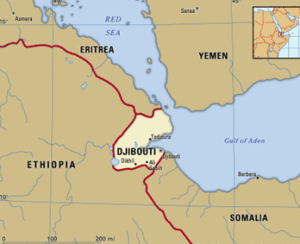TAG: GS 3: SCIENCE AND TECHNOLOGY
THE CONTEXT: On May 23, 2024, Djibouti, in East Africa, initiated a groundbreaking project to fight malaria by releasing genetically modified (GM) mosquitoes.
EXPLANATION:
- This effort is a collaborative initiative involving Oxitec Ltd, the Djibouti government, and the non-governmental organization Association Mutualis.
- The project, titled the ‘Djibouti Friendly Mosquito Programme,’ aims to curb the spread of the Anopheles stephensi mosquito, an invasive species responsible for a significant rise in malaria cases in the region.
Spread of Anopheles Stephensi
- Anopheles stephensi was first detected in Africa in 2012.
- It is originally native to South Asia and the Arabian Peninsula.
- Since then, it has rapidly expanded its range across the continent, leading to substantial increases in malaria cases.
- In Djibouti, the number of reported malaria cases surged from 27 in 2012 to over 73,000 by 2020.
- The mosquito’s ability to thrive in urban environments poses a unique threat to Djibouti, where 70% of the population resides in the capital city, Djibouti City.
Impact on Africa
- The invasive Anopheles stephensi mosquito has spread to various African countries, with reports of its presence in Ethiopia and Sudan in 2016, Somalia in 2019, and Nigeria in 2020.
- Unlike other malaria-carrying mosquitoes in Africa that primarily breed in rural areas, Anopheles stephensi’s adaptation to urban settings makes it particularly dangerous for densely populated cities.
The Djibouti Friendly Mosquito Programme
- The ‘Djibouti Friendly Mosquito Programme’ was launched two years ago with the goal of halting the spread of Anopheles stephensi.
- This pilot project, conducted in Ambouli, a suburb of Djibouti City, represents the first deployment of genetically modified mosquitoes in East Africa and the second on the continent, following Burkina Faso’s release in the village of Bana.
- It is a public-private partnership between the country’s National Malaria Program, the not-for-profit Association Mutualis and Oxitec.
- It was formed to advance a new, sustainable Oxitec solution for this growing urban malaria threat.
- Oxitec is the leading developer of biological solutions to control pests that transmit disease, destroy crops and harm livestock.
- Founded in 2002 at the University of Oxford, Oxitec is led by a passionate team comprised of 15 nationalities and is supported by world-class public, private and non-profit partners.
 Djibouti
Djibouti
Methodology
- Genetic Modification
- Oxitec, a biotechnology company, developed a novel approach to combat the malaria vector by genetically modifying male mosquitoes.
- These mosquitoes carry a gene that prevents their female offspring from reaching adulthood.
- This method specifically targets female mosquitoes, which are primarily responsible for malaria transmission, while male mosquitoes, which do not bite or transmit malaria, act as carriers of the gene.
- Reduction of Female Mosquito Population
- By releasing these genetically modified male mosquitoes into the environment, the programme aims to significantly reduce the population of female mosquitoes.
- As fewer females reach maturity, the overall number of mosquitoes capable of spreading malaria decreases, thereby lowering the transmission rate of the disease.
- Community and Stakeholder Engagement
- The pilot project in Djibouti was preceded by an extensive study of Anopheles stephensi’s distribution, abundance, and behavior across Djiboutian towns and neighborhoods over more than two years.
- This research was complemented by deep engagement with local communities and stakeholders.
- Workshops and public meetings were held to involve health officials, community leaders, and regional experts in the design and implementation of the field studies.
Anopheles Stephensi:
- Anopheles stephensi is a mosquito species that is capable of transmitting both Plasmodium falciparum and P. vivax malaria parasites.
- Unlike the other main mosquito vectors of malaria, it thrives in urban and man-made environments.
- Originally native to parts of South Asia and the Arabian Peninsula, An. stephensi has been detected, to date, in 7 countries in the African continent.
- Anopheles stephensi was first detected in Africa in 2012.
- In India, malaria elimination efforts were initiated in 2015 and were intensified after the launch of the National Framework for Malaria Elimination (NFME) in 2016 by the Ministry of Health and Family Welfare.




